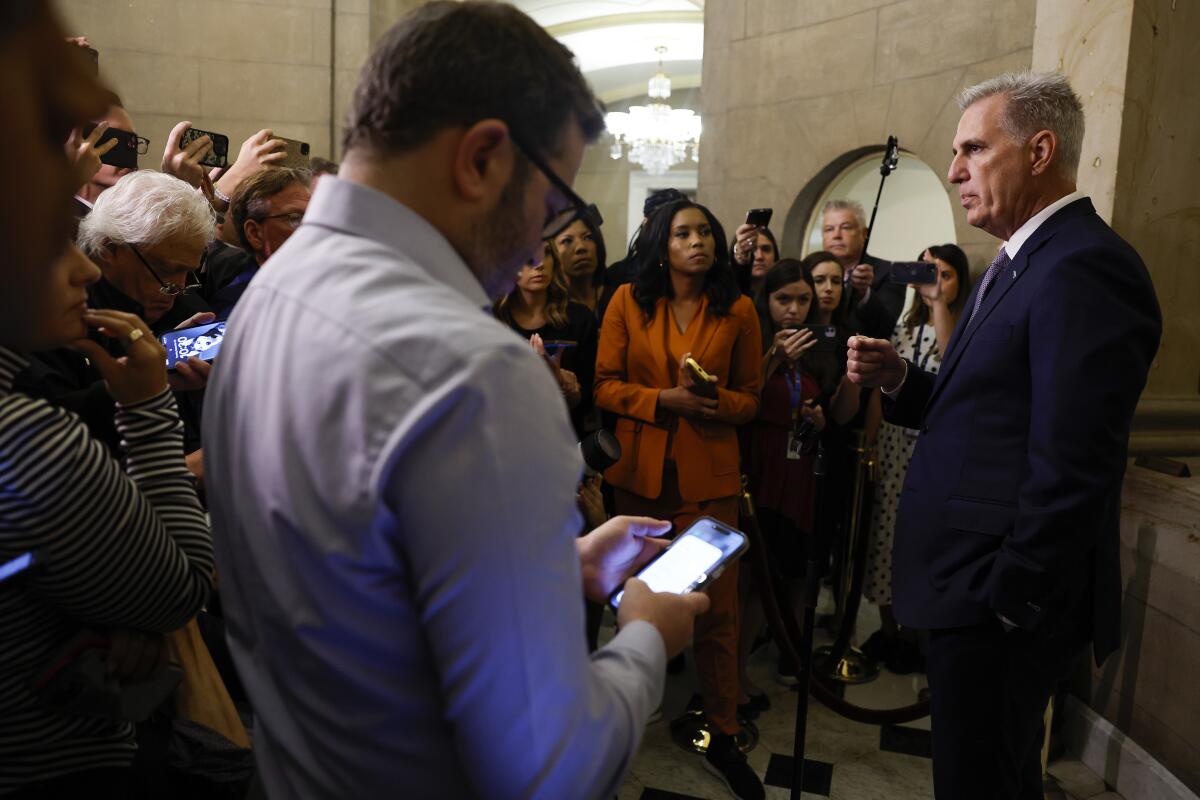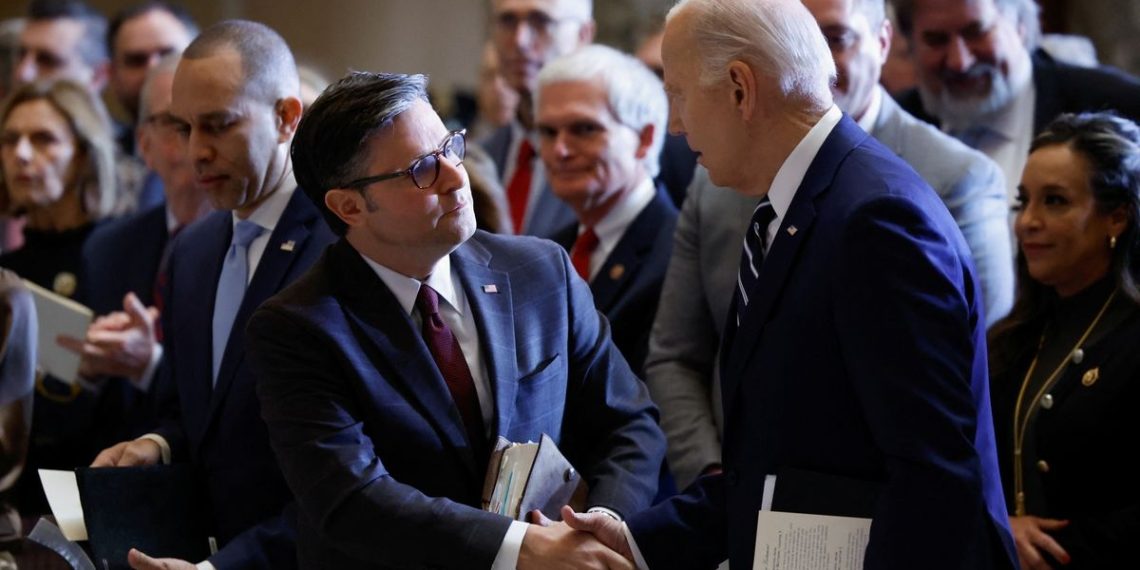President Joe Biden is scheduled to hold a crucial meeting with the top four congressional leaders at the White House, with a looming partial government shutdown just days away and no clear resolution in sight on Capitol Hill.
The meeting coincides with increased pressure from the White House for lawmakers to pass additional funding for Ukraine. While the Senate approved a bill providing aid for Ukraine and Israel earlier, House Speaker Mike Johnson has indicated hesitance to bring it to the floor, facing opposition from a significant number of GOP House members regarding further assistance to Ukraine.
The meeting attendees include Johnson, Senate Majority Leader Chuck Schumer, Senate Minority Leader Mitch McConnell, and House Minority Leader Hakeem Jeffries.
Senate Majority Leader Schumer urged House Republican leadership to prioritize critical funding bills over aligning with former President Donald Trump’s preferences. McConnell cautioned against the harmful impact of a potential shutdown, emphasizing the need for bipartisan cooperation.
Senators reconvened on Monday, but the House is set to return on Wednesday, leaving little time before the impending deadline on Friday. Despite hopes for a bipartisan spending deal, disagreements persist, particularly over policy issues, as Johnson faces pressure from conservative factions within his party.

Congress faces dual shutdown deadlines on March 1 and March 8, following a temporary funding bill passed in January. Failure to act by Friday would result in funding expiration for various government agencies.
Johnson’s leadership in the House is challenged by a slim majority and dissent from hardline conservatives, who oppose previous funding bills and a spending agreement with Schumer. Speculation lingers regarding potential challenges to Johnson’s speakership, akin to the ousting of former Speaker Kevin McCarthy last year.
Funding for numerous government agencies is set to expire on March 1 and March 8, encompassing critical departments and programs, including defense, agriculture, transportation, and education.





